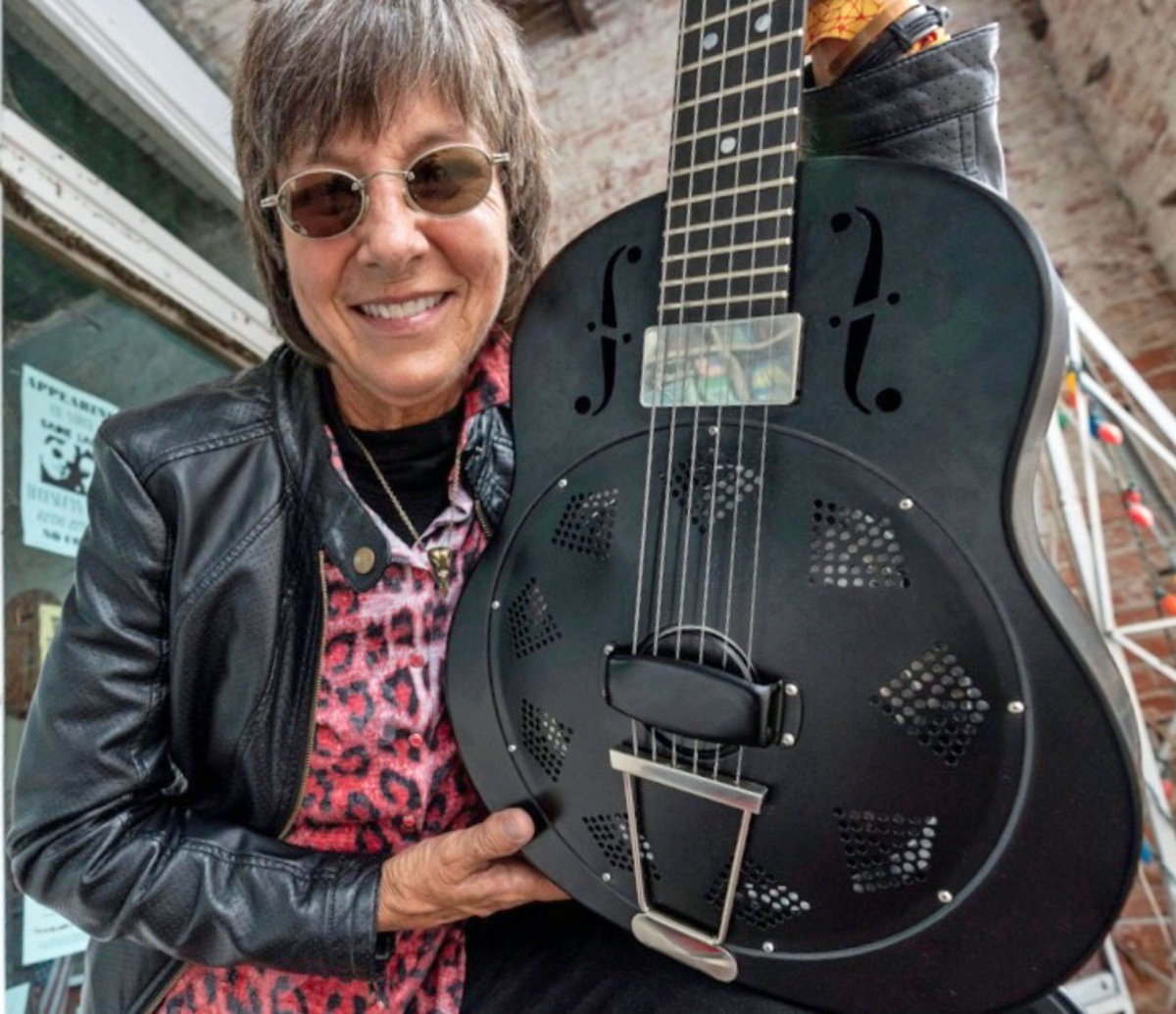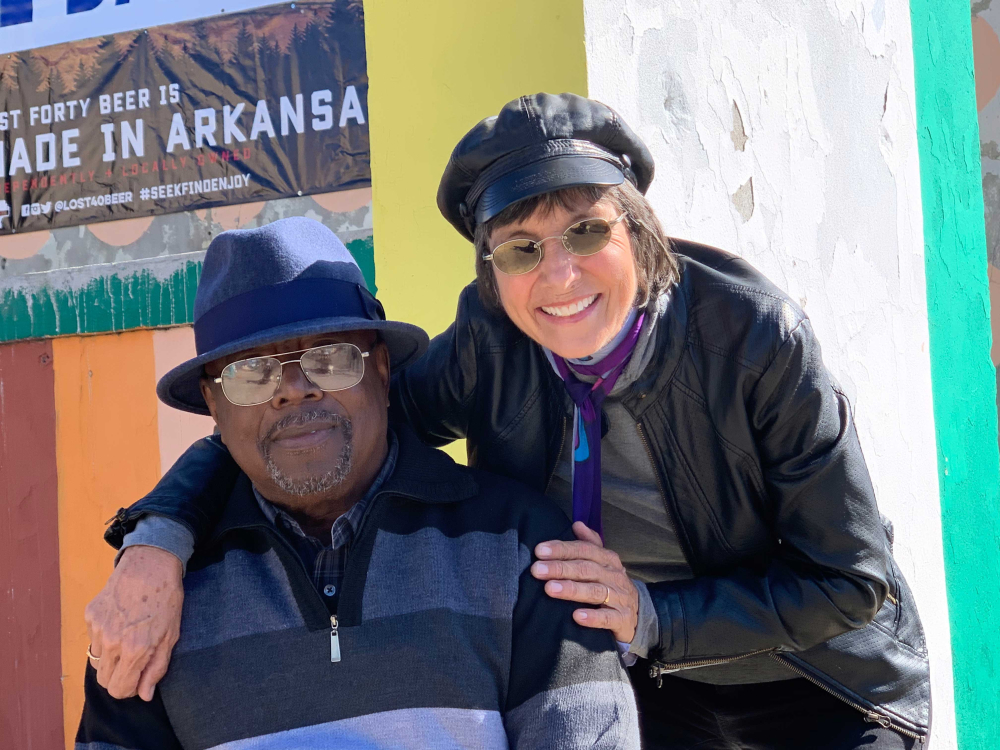Introduction
Earl “Little Joe” Ayers grew up playing Hill Country blues, a type of blues distinct to North Mississippi that is unique in its hypnotic guitar style with few chord changes. Through the apprenticeship program, he shared his knowledge of this style of blues with his friend and apprentice Libby Rae Watson.
Master Artist: Earl “Little Joe” Ayers

Hill Country blues Master, “Little Joe” Ayers is from Lamar, Mississippi, just outside of Holly Springs. He grew up playing with legendary Cotton Patch Soul Blues musician, Junior Kimbrough, and as a teenager, they played house parties together. Eventually, the two made several recordings and played with other bands from the area.
“I began playing guitar as a member of Junior Kimbrough’s band the Soul Blues Boys in 1965,” said Joe. “We made our first recording in Memphis for Philwood Records in 1967. Later, after George Scales left the band, I moved to bass guitar which I played as an active member of Junior Kimbrough and the Soul Blues Boys until Junior’s passing in 1998. I have continued to play with anyone who shows interest in my music, or the blues from the region.”
Apprentice: Libby Rae Watson

During the apprenticeship, they focused on the finger picking and thumb techniques of this particular style of blues so that Libby Rae will be able to teach it to future generations.
Apprentice Libby Rae Watson was born and raised in Pascagoula, Mississippi, and she has always had a natural interest in music. She played the flute as a girl and started playing guitar in high school. It was around this time that she discovered blues music, and that most blues performers were also from Mississippi. In the quote below, Libby talks about how she discovered blues music.
“Maybe around ninth or tenth grade, I had a friend move here from California and brought all new music. And so I was listening to some cool stuff that I wouldn’t have heard for another couple years or so. That got me off into the blues thing. So I really just liked that kind of music, just inherently liked it.”
In college while training to become a dental hygienist, Libby spent her weekends traveling the state and seeking out other blues musicians to play with, accompanied by her future husband who was also interested in the blues. As she became more confident in her musical ability, Libby met many experienced musicians and eventually developed a close relationship with Sam Chatmon of the Mississippi Sheiks, who brought her into his inner circle and became a mentor.
Apprenticeship Experience

Joe met Libby in 2016 at the music venue Foxfire Ranch, just south of Holly Springs. Libby had been touring with three other musicians hoping to help Mississippians gain a better understanding of blues music. After their initial meeting at Foxfire, Joe called Libby and they quickly became close friends, talking on the phone and playing together often.
During the apprenticeship, they focused on the finger picking and thumb techniques of this particular style of blues so that Libby Rae will be able to teach it to future generations.
“A lot of those songs are pretty similar; they’re all in the key of E or A, so to make them sound different they each have their distinctive lick,” said Libby. “So what I was trying to get out of each song was the distinctive lick. And then of course, yeah, I’d turn the recorder off and sit there and try to play it with him. [Joe] would just keep playing, keep playing, keep playing.
Libby not only wanted to gain a deeper appreciation of Hill Country blues guitar, which is notable for its rhythmic droning quality, but she also wanted to build her relationship with Joe. As Libby explains, “It made the learning part real easy because we’re friends.”
Some of Joe’s most distinctive qualities are his friendliness and hospitality, as well as his love for Marshall County, where he grew up. One of his favorite places is the cemetery, where he can learn about the genealogy of Holly Springs families. During the apprenticeship, Joe and Libby would spend half of their time together playing, and then Joe would drive Libby around North Mississippi, pointing out spots that were significant to his history and the history of the blues.
Their apprenticeship took a holistic approach by understanding the history and culture of the music, as well as perfecting how to play it.
Conclusion
Because Libby lived on the southern coast of Mississippi, and Joe resides in the northern region of the state, they had to make good use of their time when they could meet in person. To help her learn, Libby would take phone videos of Joe playing the “licks” to study when she returned home. She would not copy his playing but wanted to understand the basics of it and interpret it in her own way. Their apprenticeship took a holistic approach by understanding the history and culture of the music, as well as perfecting how to play it. Through their time together, they are not only preserving Hill Country blues music, but the history that created it.

